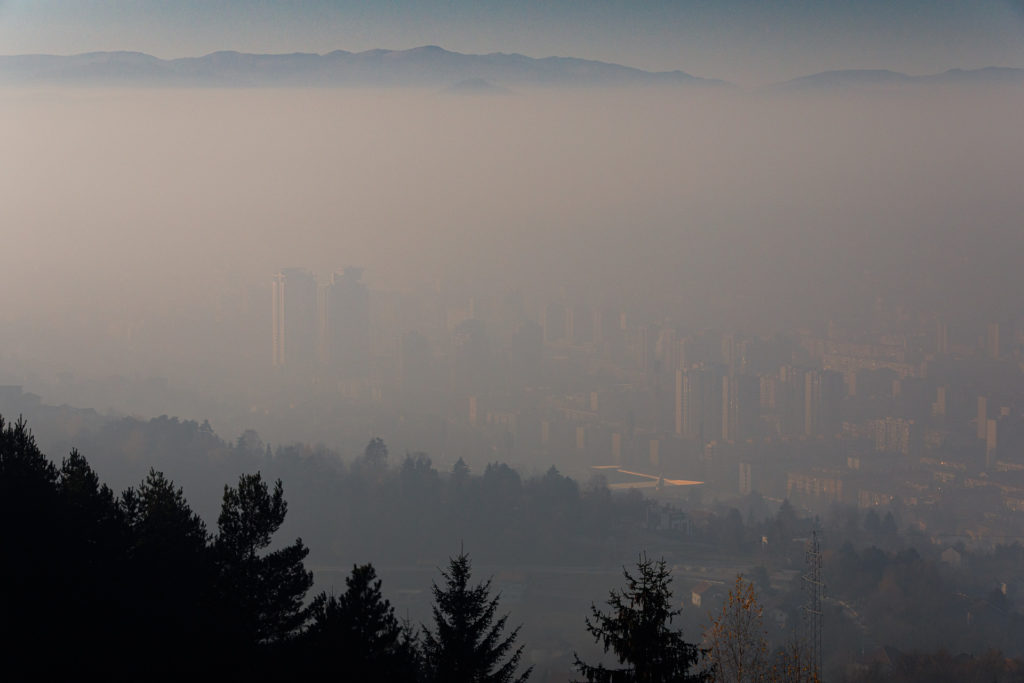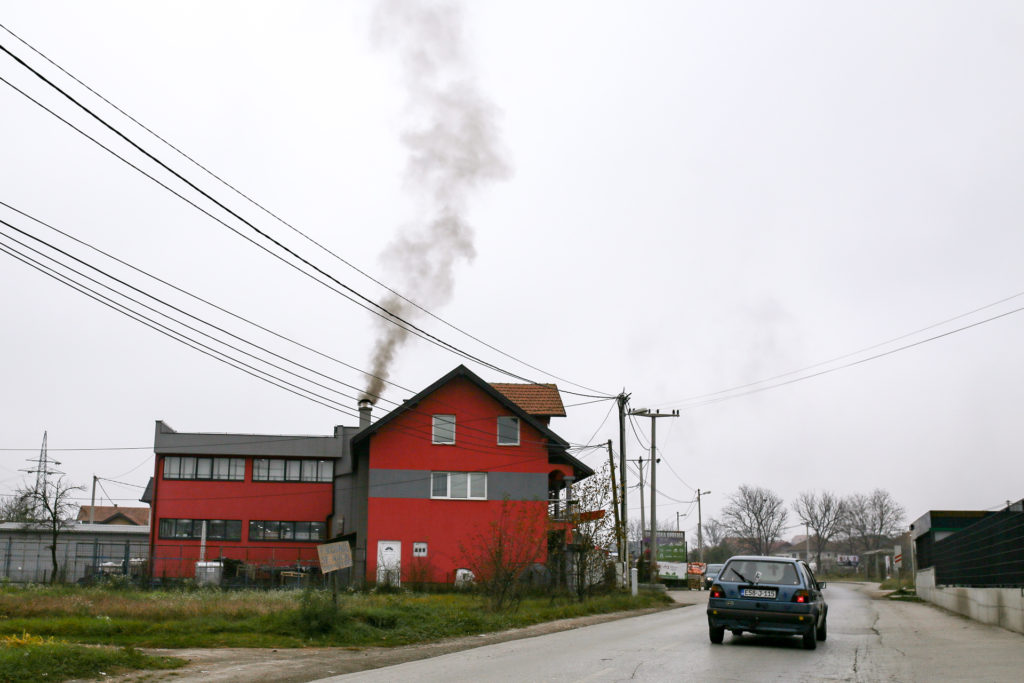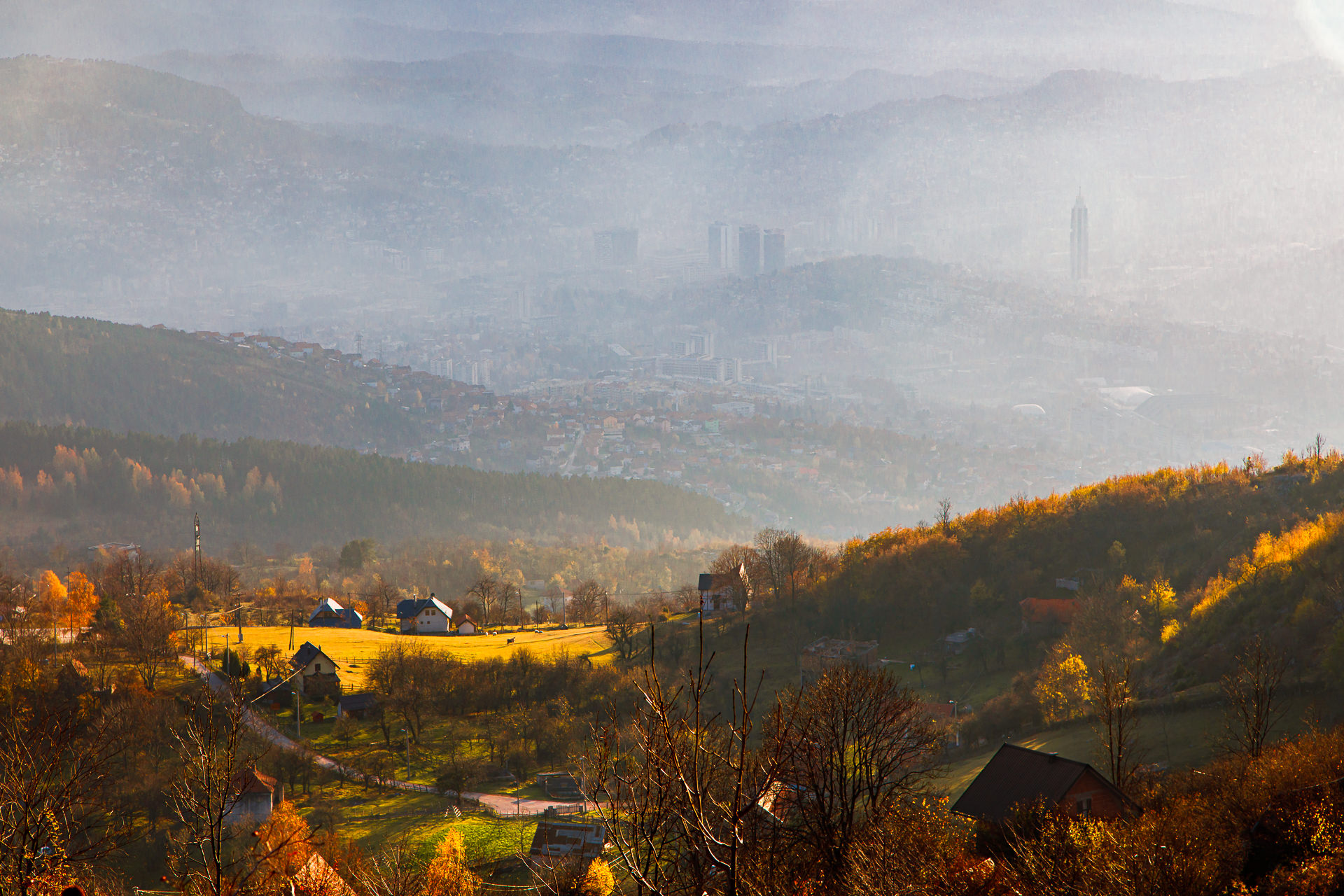Environmental issues are deeply intertwined with gender equality, social equity, and poverty. This is highly relevant regarding air pollution in Bosnia and Herzegovina, where energy poverty has worsened inequalities.
Air pollution is one of the most significant environmental health risks in Europe. In Bosnia and Herzegovina (BiH), air pollution is particularly severe as levels are often considerably higher than the World Health Organisation’s (WHO) air quality guideline values. With nearly 3300 premature deaths a year, BiH has one of the world’s highest average mortality rates attributed to air pollution exposure.
Industrial activities and emissions from the transport sector are the main sources of BiH’s high air pollution levels. But emissions from burning wood and coal for heating homes, which occurs more often in the winter when average temperatures are around 0°C, also contribute to air pollution. During this period, BiH’s air quality diminishes significantly and this can cause serious health issues, especially in urban areas.

Trapped in energy poverty
In BiH, the more disadvantaged social groups in society – such as the unemployed, low-income households, or those with a lower level of education – are often hit the hardest by air pollution and other environmental health hazards. At the same time, economically disadvantaged households are often trapped in “energy poverty,” meaning they lack access to affordable, sustainable energy services, which causes significant environmental impacts.
The WHO has found that in Eastern European countries, energy poverty represents one of the most substantial forms of environmental inequality across various social groups, including people living in rural and urban areas, different ethnicities, and income groups. Energy poverty in BiH stems from the combination of energy prices, low household income and energy inefficient houses. Underprivileged people are also more likely to drive older, high-emission vehicles or live in informal constructions, which all cause higher emissions.

In BiH, the elderly, persons with disabilities, the unemployed, those with health problems, and single-headed households (mainly female single-headed ones) are more likely to be energy poor than the rest of the population. This is not only because of the low-income levels these groups have, but also their higher energy needs since they might spend more time at home. Also, energy poverty often limits households’ access to clean cooking facilities, and insufficient fuels and stoves might reduce indoor air quality. According to the World Bank, only 63% of the population in BiH had access to clean cooking technologies in 2016. As women tend to work more with different household tasks because of conservative and patriarchal values in BiH, they are also more exposed to indoor air pollution.
The Roma population and people living in refugee camps appear to be especially exposed to air pollution, as it is often a persistent issue in poor-quality housing and temporary settlements. The availability of services such as electricity and sanitation depends on the legal registration of residential buildings. Since many Roma people live in informal settlements – notably as a result of socio-economic discrimination – they have limited access to these services. In addition, illegal construction increases heating needs that are often solved with coal, resulting in large polluting emissions which affects those living in these areas.
Social and economic impacts on the disadvantaged
Certain social groups in BiH are more impacted by air pollution not only because of their disproportionate exposure to pollution, but also due to their higher vulnerability.
Some disadvantaged groups are particularly at risk from air pollution‘s health impacts, including people with pre-existing lung and heart disease or diabetes, the elderly, pregnant women, and children. Most air pollution related deaths occur in those aged 50 and older, mostly through cardiovascular diseases.
While physiological factors play a role, examining socio-economic factors is essential in order to understand the differences in vulnerability to air pollution’s negative impacts. In Europe, for instance, it’s common for people of lower socio-economic status to live, work and go to school in places with poorer air quality. Poverty can worsen the negative health impacts of air pollution by limiting access to information and health care resources.
Moreover, measures designed to cope with air pollution may have unintended and undesirable consequences for children and women. For instance, due to the air pollution in Sarejevo, the capital of BiH, schools are closed to protect children’s health. This might negatively affect the children’s education as their regular studies are interrupted. But the cascading effects also hit women, because they are the ones who often need to stay home with their children due to the prevailing gendered-biased distribution of care responsibilities in BiH.
We need to address structural inequity
Addressing the structural inequity, underlying vulnerabilities and exposure would create better informed and more effective policymaking to tackle air pollution. Indeed, without addressing the socio-economic issues that contribute to air pollution and increased vulnerability to its negative impacts, the vicious circle of inequality and air pollution will continue.
This could mean, for instance, making poverty reduction and increasing general well-being key policy priorities. Also, there is a need to improve buildings’ energy efficiency, improve public transport quality and accessibility, and enhance housing conditions to reduce air pollution and bring about significant health benefits. And there is an urgent need to define short-term action plans for areas where disadvantaged people tend to live or spend their time, and these plans should be co-developed together with these communities.
More information:
Find out more about air pollution and social equity in the discussion brief ”Air pollution in Bosnia and Herzegovina: a gender equality, social equity and poverty reduction lens”.
A broader introduction to the interlinkages between GESEP and different BiH environmental issues is available in this Q&A on the topic.







